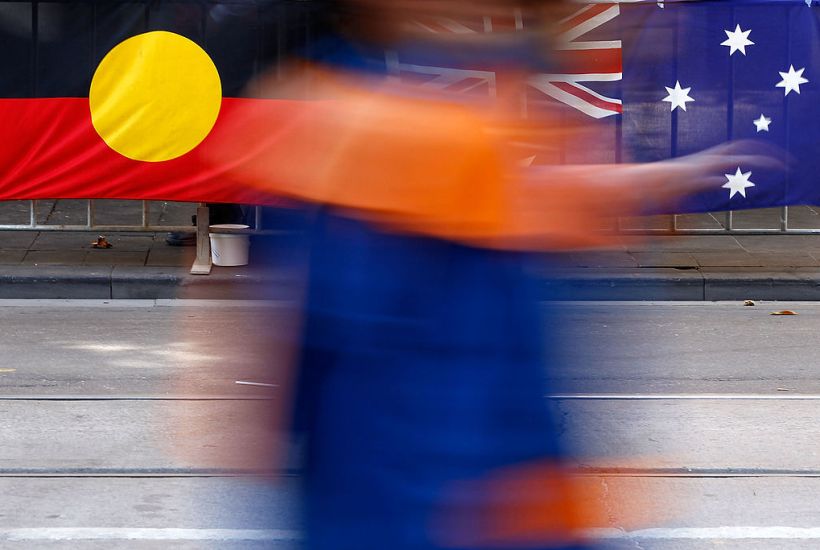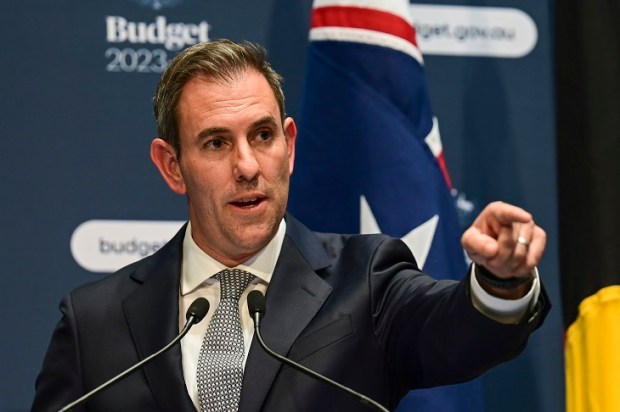We are not yet halfway through the run-up to the referendum on the Voice to Parliament, and already many of us are weary. I try to listen respectfully to those who are convinced of its worth, but the continued obfuscations are deadening to the soul – it all seems so hollow.
Hollowness of speech comes from emptiness of thought. How do people of such thoughtlessness come into positions of influence? Well, when they latch onto an ideology, they do not have to think. All they have to do is put their faith in it, learn the mantra, repeat the lines, and go for it. That means they cannot offer others hope. Hope is deep. It speaks to our souls and is part of finding genuine meaning within our humanity – humanity that is both glorious and broken at the same time.
When people blindly follow an ideology, there is no basis for compassion, or for unity across differences. It is either ‘you are for us, or not’. And if you are not, you are worthless. How can hope be offered to someone you consider a lesser human being?
Sadly, this is the default position of human societies. Inequality of worth is our natural social stance. Equality of worth, regardless of differences, had to be hard-won from places outside of our natural social stance (and that is another story).
What are the current ideologically hopeless themes coursing through Australian society? Here are a few that we can recognise.
Cultural neo-Marxism: these folk can describe and discuss issues well. They have a sophisticated level of speech which can make a lie sound true. As for truth, they do not care about truth tested by analysis, by philosophy, or by theological premises. Truth is a mechanism to gain influence. Faithfulness, in this circumstance, is measured by loyalty to the (political) ‘tribe’. Their preference is to support ideas that destabilise the deep traditions that have brought respect for humanity, a commitment to care for others, and equality before the law. Neo-Marxism targets anything in Western Civilisation that comes from the Judeo-Christian heritage – particularly the family (classically understood), freedom of religion, freedom of association, free speech, and freedom of the press. To see the consequence of a Neo-Marxist society, look to societies where parents have reduced authority over their children or where leaders of faith have to adhere to State regulations over those of their religion.
Neo–philanthropists: these people (and/or corporations) have enough money to look for a cause that will enhance their influence with the elites or win them membership into that caste. They are not content to bring their wealth to the ‘common good’, because they do not believe in a common good. The good they desire is profit maximisation, but only for shareholders, not customers. Such ‘adopted ideological’ commitments means they do not have to wrestle with ethics. They adopt a mantra, never question the logic, and fail to scrutinize any repercussions. This is an ideology that lacks accountability. Reflections about hope are irrelevant – they are putting their money into what counts in their minds.
Pantheists: this ideology works by tearing down the worth of individuals during their journey through pain and disappointment, towards deeper meaning. It does this by placing the natural world above all else as a new religion, and thus Mother Nature becomes their leading spiritual fantasy. It is an ideology that prefers to spend money on saving the whales instead of children born alive in failed abortions. The bizarre incoherence of this ideology makes it meaningless – they preach about causing no harm to the earth while happily benefitting from the technological advances that require stewardship of the planet’s resources. There is no hope in such hypocrisy.
Pseudo-Scientific Catastrophists: none of the first three ideologies can survive in a world that is built upon the scholastics and the Enlightenment. Their cry of ‘the Science is settled’ is another meaningless mantra. J.P. Moreland calls this movement ‘scientism’, and notes how dangerous it is for ongoing free society. To experience the hopelessness that lives within these groups, simply ask for data, or modelling, or the freedom to debate alternatives to their preferred narrative. Details are an anathema to these ideologues, for there are too many expert emperors running around with no clothes and they want their nakedness to stay hidden.
Feelingists: many ordinary people do not fit into the above groups. They are comfortable to let them battle it out so long as they remain comfortable. Why should they worry about tomorrow if ‘those people’ are in control? But this large group are a feeling type of people. They also bring a warning to the other groups as they are quick to rise up if society is tugged too far. The feeling group seeks hope. They want not only a good life, but in the best of times, they insist on it being meaningful.
The elites are hopeless. They keep pushing along their broad path of promise, and do not recognise their heartlessness until the reaction sets in. Repentance and reconciliation are normally not offered when the corrective happens – and that is because group A plays the long game. They re-package their endeavours by finding some feeling that they can use – sorry, or should that be that they look for the ‘vibe’?
I will not give up – and I, for one, will look for what Gemma Tognini recently reported about – a friend who went through loss and grief. Like Gemma, I agree that the challenge of such a response is worth the struggle: ‘My friend told me the shipwreck of losing their daughter strengthened their faith. A Christian myself, I found and still find that very challenging.’
Therein is the heart of humanity. Beware the facsimiles of the ideologues of our times.
Got something to add? Join the discussion and comment below.
Get 10 issues for just $10
Subscribe to The Spectator Australia today for the next 10 magazine issues, plus full online access, for just $10.


























Comments
Don't miss out
Join the conversation with other Spectator Australia readers. Subscribe to leave a comment.
SUBSCRIBEAlready a subscriber? Log in